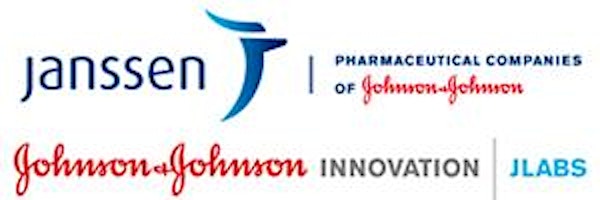
Innate Lymphoid Cells in Health and Disease Event Registration
Date and time
Location
Hilton La Jolla Torrey Pines
10950 N Torrey Pines Rd La Jolla, CA 92037Description
The Annual Janssen Immunology Symposium provides a forum for discussions among scientists about the importance of Innate Lymphoid Cells (ILC) in health and disease. Lectures will be given by renowned immunologists who are invited to spend two days meeting in San Diego to share the latest developments in their respective fields of research. Janssen Research & Development, LLC (Janssen) has welcomed graduate students and post-doctoral fellows to submit poster abstracts on ILC research. The top two abstracts have been selected by a panel of Janssen reviewers and will be featured in short podium presentations.
 Day 2: IBD and Metabolic Disease
Day 2: IBD and Metabolic Disease



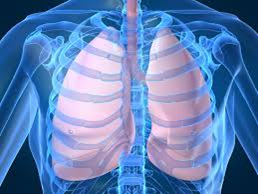

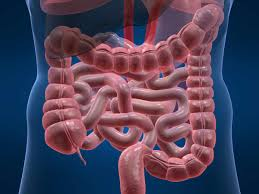 Oct 6th Asthma and Allergy
Oct 6th Asthma and Allergy 8:00-8:45 am | Breakfast
Morning session
8:45-9:00 am | Session introduction 9:00-9:45 am |
-KEYNOTE- Hergen Spits AMC:
"The spectrum of ILC subsets in human inflammatory diseases" 10:00-10:45 am | Hirohito Kita Mayo Clinic:
"Functions of IL-33 and group 2 innate lymphoid cells in controlling allergic airway inflammation and asthma" 11:00-11:45 am | Atsushi Kato Northwestern:
"Innate lymphoid cells and TSLP in chronic rhinosinusitis" 12:00-12:15 pm | Elia Tait Wojno Cornell:
"The prostaglandin D2 receptor CRTH2 regulates ILC2 responses during type 2 inflammation"
12:15-1:30 pm | Lunch
Afternoon session
1:30-2:15 pm | David Broide UCSD:
"Lipid mediator regulation of ILC2 Th2 cytokine response"
Taylor Doherty UCSD:
"Lipid mediator control of respiratory tissue ILC2s" 2:30-3:15 pm | Omid Akbari USC:
"Pathways that control the effector function of innate lymphoid cells" 3:30-4:15 pm | Ray Peebles Vanderbilt:
"PGI2 regulates ILC2 function" 4:30-4:45 pm | Matthew Stier Vanderbilt:
"Respiratory Syncytial Virus Induces IL-13+ Group 2 Innate Lymphoid Cells Via TSLP"
4:45-6:30 pm | Reception
 Oct 7th IBD and Metabolic Disease
Oct 7th IBD and Metabolic Disease 8:00-8:45 am | Breakfast
Morning session
8:45-9:00 am | Session introduction 9:00-9:45 am |
-KEYNOTE- David Artis Cornell:
"Emerging functions of innate lymphoid cells" 10:00-10:45 am | Marco Colonna Wash U:
"Innate Lymphoid Cells in Mucosal Immunity" 11:00-11:45 am | Gregory Sonnenberg Cornell:
"Immune regulation of intestinal health and disease" 12:00-12:15 pm | Sachin Gadani UVA:
"Meninges-resident ILC2s and their role in CNS injury"
12:15-1:30 pm | Lunch
Afternoon session
1:30-1:45 pm | Session Introduction 1:45-2:30 pm | Ari Molofsky UCSF:
"Regulation of adipose tissue group 2 innate lymphoid cells" 2:45-3:30 pm | Kenneth Cadwell NYU:
"Gene-microbe interactions in inflammatory disease" 3:45-4:30 pm | Miriam Merad Mount Sinai:
"Macrophage control of gut homeostasis" 4:45-5:00 pm | Babak Baban Georgia Regents University:
"Innate Lymphoid Cells in Periodontitis"
5:00-7:00 pm | Reception
**No Walk-ins Permitted**
Hotel Info:
Hilton La Jolla Torrey Pines
10950 N Torrey Pines Rd
La Jolla, CA 92037
(858) 558-1500
www.hiltonlajollatorreypines.com
Map
Airport Info:
San Diego International Airport
www.san.org
Map
SPEAKERS' BIOGRAPHIES:
 Hergen Spits | Amsterdam Medical Center -KEYNOTE-
Hergen Spits | Amsterdam Medical Center -KEYNOTE-
Hergen Spits graduated in 1984 from the University of Amsterdam. After a two-year post-doctoral period at the Netherlands Cancer Institute (NKI) in Amsterdam, he joined Schering Plough (SP) in 1985. Following a two-year post doc time period at the NKI, Spits worked as a Senior Scientist at the SP research laboratory in Dardilly, France, and, from 1988 through 1992, at the DNAX Research Institute in Palo Alto, CA, USA. In 1993 he returned to the NKI to assume the position of senior scientist in the division of Immunology. From 2000 through 2002 he was head of this division. In October 2002 he became Professor of Cell Biology at the Academic Medical Center, University of Amsterdam. In 2004 dr Spits co-founded AIMM Therapeutics to commercialize a technology of immortalizing human B cells. In 2006 he joined Genentech Inc. in South San Francisco, CA, USA. From 2006 until 2008 Spits was responsible for the drugs discovery efforts in the autoimmune disease program of Genentech and in 2008 he became head of the Cancer Immunotherapy Program. In July 2009 Spits returned to the AMC in Amsterdam where he is currently professor in cell biology.
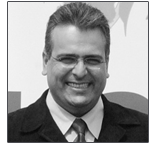 Omid Akbari | University of Southern California
Omid Akbari | University of Southern California
Dr. Akbari obtained his Ph.D. from Brigitta Stockinger's laboratory in the Division of Molecular Immunology at the National Institute for Medical Research. He performed postdoctoral work at Stanford University and in 2004 became Assistant Professor of Allergy and Immunology at Harvard Medical School. In 2008, Dr. Akbari joined the Department of Molecular Microbiology and Immunology, Keck School of Medicine, USC as Tenured Associate Professor of Immunology. The objective of Dr. Akbari's laboratory is to characterize and define acquired and innate immune responses at mucosal surfaces; investigate the mechanisms underlying regulation of these responses and determine means by which those responses can be specifically manipulated. His recent research has contributed insights into the regulation and maintenance of ILC2s.
 Kenneth Cadwell | NYU School of Medicine
Kenneth Cadwell | NYU School of Medicine
Dr. Ken Cadwell did his postdoctoral research with Dr. Herbert “Skip” Virgin at Washington University School of Medicine where he was a Damon Runyon Cancer Research Fellow investigating the mechanism by which gene-pathogen interactions contribute to inflammatory bowel disease. He joined the Skirball Institute at NYU School of Medicine in 2010 and is an assistant professor in the Department of Microbiology. Current research is focused on understanding the cellular mechanisms that control the magnitude and quality of immune responses to an infection. He is the recipient of the Dale F. Frey Award for Breakthrough Scientists from the Damon Runyon Foundation and the ICAAC Young Investigator Award from the American Society for Microbiology, and is serving as an associate editor for the journal Autophagy.
 Marco Colonna | Washington University
Marco Colonna | Washington University
Dr. Marco Colonna was born in Parma, Italy. He received his medical degree from the Parma University School of Medicine in 1983, and completed specialization in Internal Medicine at Parma University in 1988. Dr. Colonna began postdoctoral training as a Research Fellow at the Istituto Nazionale per la Ricerca sul Cancro in Genova, Italy, followed by work as a Research Fellow in Pathology at Dana Farber Cancer Institute and Harvard Medical School. He then became a scientific member of the Basel Institute for Immunology in Switzerland, a leading center for collaborative immunology research that helped lay the groundwork for our understanding of immunology. Since 2001 he has been Professor of Pathology & Immunology and Medicine at Washington University School of Medicine in St. Louis, MO. Dr. Colonna’s laboratory is broadly interested in innate immunity. His team discovered Triggering receptors expressed on myeloid cells (TREM), cell surface receptors encoded on human chromosome 6 that are differentially expressed on granulocytes, dendritic cells, macrophages and osteoclasts and regulate their functions. Human deficiency in TREM2 or the associated signaling adaptor DAP12 causes a progressive, early onset dementia known as Nasu-Hakola disease. Recently, a TREM2 polymorphism was implicated as a genetic risk for Alzheimer’s disease (AD). Dr. Colonna’s laboratory is currently exploring the capacity of TREM2 to promote microglial cell function and how TREM2 allelic variants result in susceptibility to AD. Dr. Colonna has published 80 primary last-author studies in peer-reviewed journals, and holds editorial appointments for many publications, including European Journal of Immunology (Deputy Editor), Immunity and Journal of Experimental Medicine.
 Taylor Doherty | University of California San Diego
Taylor Doherty | University of California San Diego
Taylor Doherty is an assistant professor of medicine at UC San Diego and currently investigates novel mechanisms that control respiratory tract ILC2s during type 2 inflammation. He graduated from Rosalind Franklin/The Chicago Medicical School in 2002 followed by internal medicine residency training at UC San Diego. He remained at UCSD and became chief resident and subsequently trained in allergy immunology. During his post-doctoral training, he worked in the laboratory of Dr. Michael Croft studying the role of TNF family members in asthma. He received an NIH K08 award in 2010 followed by an R01 in 2014 with a focus on ILC2 biology. His recent work was the first to demonstrate that leukotrienes, lipid mediators that are elevated in asthma, active lung ILC2s to promote type 2 inflammation. In addition to his laboratory studies, he takes care of patients with asthma and allergies in a weekly clinic.
 Atsushi Kato | Northwestern University School of Medicine
Atsushi Kato | Northwestern University School of Medicine
Dr. Kato received a BS and MS degree from Tokyo University of Pharmacy and Life Science, Tokyo, Japan in 1996 (B.S., Pharmacy) and 1998 (M.S., Pharmaceutical Sciences/Toxicology). Dr. Kato did predoctoral training at National Research Institute for Child Health and Development, Japan and Kochi Medical School, Japan. Dr. Kato then got his Ph.D. degree at Kochi Medical School in 2004 (Ph.D., Medical Science/Immunology). Following this, he moved to Division of Allergy-Immunology, Northwestern University School of Medicine, USA as a postdoctoral fellow in 2005. Dr. Kato was promoted to Assistant Professor of Medicine (tenure-track), Northwestern University School of Medicine in 2007. Dr. Kato's laboratory is focused on the role of epithelial cytokines in the initiation and activation of airway inflammation. His laboratory also investigates the pathogenesis of chronic rhinosinusitis which is a chronic inflammatory disease of the sinuses and upper airways that affects over 10 million Americans.
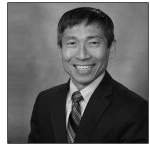 Hirohito Kita | Mayo Clinic
Hirohito Kita | Mayo Clinic
Hirohito Kita, M.D., is a consultant in the Division of Allergic Diseases, Department of Internal Medicine, at the Mayo Clinic, Rochester, MN with joint appointments in the Department of Otorhinolaryngology; the Department of Pediatrics; and the Department of Immunology. He holds the academic rank of professor of medicine and professor of immunology and is recognized as the Walter and Leonore Annenberg Professor of Pulmonary Medicine. Dr. Kita received the M.D. degree at Mie University School of Medicine, Mie, Japan in 1983. He completed residencies at Shizuoka Children's Hospital and Mie National Hospital, as well as fellowships at Mie National Hospital, Mie University School of Medicine, and Mayo Clinic. He joined the faculty of Mayo Clinic in 1991. Dr. Kita has held professional memberships in numerous organizations, including the American Academy of Allergy Asthma and Immunology, American Association of Immunologists, American Thoracic Society, Society of Leukocyte Biology, and International Eosinophil Society. He has been an editorial board member of the Journal of Immunology, Journal of Allergy and Clinical Immunology, Clinical Immunology and Allergology International. Since 1995, Dr. Kita has been involved in several NIH study sections as a regular member and an ad hoc member as well as in a number of other funding agencies. In addition, he has served in numerous curriculum and course development, teaching and mentoring activities, and administrative responsibilities at Mayo Clinic. The overall goals of Dr. Kita's research are to better understand the mechanisms of allergic diseases, such as bronchial asthma, atopic dermatitis, food allergy and chronic rhinosinusitis. His research is focused on eosinophil biology and immunological mechanisms of acute and chronic airway inflammation, including the development of innate and adaptive type 2 immunity, roles for novel cytokines, and immunologic functions of epithelial cells. His research is translational and focuses on finding ways to prevent, treat and cure the allergic diseases. Dr. Kita has mentored more than 70 graduate students and postdoctoral fellows and has authored or co-authored more than 250 original articles, book chapters, and editorials.
 Miriam Merad | Mount Sinai School of Medicine
Miriam Merad | Mount Sinai School of Medicine
Miriam Merad, M.D.; Ph.D. is a Professor of Oncological Science, Medicine (Hem/Onc division) and Immunology and a Member of the Immunology Institute and The Tisch Cancer Institute at the Mount Sinai School of Medicine in New York. Dr. Merad obtained her M.D. at the University of Algiers, Algeria. She did her residency in Hematology and Oncology in Paris, France and obtained her Ph.D. in immunology in collaboration between Stanford University and University of Paris VII. She was recruited to Mount Sinai School of Medicine in 2004 and was promoted to the rank of Associate Professor with Tenure in 2007 and to Full Professor in 2010. Dr. Merad obtained an endowed Professorship in 2014. In 2010 Dr. Merad became the program leader of the Cancer Immunology Immunotherapy group at The Tisch Cancer Institute and the director of the Human Immunomonitoring Center. Dr. Merad also serves as the Associate Director for the M.D. Ph.D. program at Mount Sinai Medical School. Dr. Merad's laboratory studies the mechanisms that regulate the development and function of the mononuclear phagocyte lineage including dendritic cells and macrophages. Her laboratory has extensively studied the mechanisms that control dendritic cells and macrophage homeostasis in different tissues. Dr. Merad has also made seminal discoveries in macrophage biology revealing their embryonic origin and their local maintenance in situ. Dr. Merad belongs to the Immgen Consortia to help decipher the transcriptional regulation of the tissue dendritic cell and macrophage lineage. Currently, one of the major goals of her laboratory is to identify the contribution of phagocytes to disease outcome including cancer and microbial immunity. Dr. Merad has authored more than 150 primary papers and reviews in high profile journals and has obtained extensive NIH funding for her studies on dendritic cells and macrophage biology in mice and humans.
 Ari Molofsky | University of California San Francisco
Ari Molofsky | University of California San Francisco
I grew up in Austin Texas and trained as an MD/Ph.D. at the University of Michigan, studying the interactions between macrophages and pathogenic Legionella pneumophila. My postdoctoral work defined a type 2 immune 'module' in white adipose tissue that limits excessive 'classical' inflammation and is protective in models of type 2 diabetes. I am currently an Assistant Professor at UCSF in the Department of Laboratory Medicine as well as a practicing hematopathologist. The broad goal of my research group is to understand the regulation and function of type 2 immune responses in metabolic health and disease. Our early work is focused on the interactions of group 2 innate lymphoid cells (ILC2) and regulatory T cells (Treg) in adipose tissue.
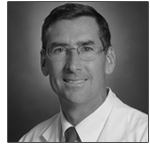 Ray Peebles | Vanderbilt University Medical School
Ray Peebles | Vanderbilt University Medical School
Dr. Peebles is the Elizabeth and John Murray Professor of Medicine at Vanderbilt University Medical School. He graduated from Davidson College and Vanderbilt University School of Medicine. Dr. Peebles completed a residency in Internal Medicine at Vanderbilt, was Chief Resident at the Nashville V.A. Medical Center, and was elected to the Alpha Omega Alpha Honor Medical Society. He completed a four year fellowship in Allergy/Clinical Immunology at Johns Hopkins and a three year fellowship in Pulmonary/Critical Care Medicine at Vanderbilt. Dr. Peebles is Board Certified in Internal Medicine, Allergy/Immunology, Pulmonary, and Critical Care Medicine. Dr. Peebles has a very active research program investigating lung inflammation and is currently principal investigator of a U19 Asthma and Allergic Diseases Cooperative Research Center, an NIH R01, and a Veterans Administration Merit Award.
 Gregory Sonnenberg | Cornell University
Gregory Sonnenberg | Cornell University
Gregory F. Sonnenberg is Assistant Professor of Microbiology and Immunology in Medicine at Weill Cornell Medical College, Cornell University, New York City. He received his undergraduate degree in 2007 from the State University of New York at Buffalo and earned his Ph.D. in 2011 from the University of Pennsylvania. Sonnenberg studies how interactions between the mammalian immune system and commensal bacteria can regulate health and disease in the gastrointestinal tract. The main goals of his lab are to interrogate the pathways that regulate normally beneficial host interactions with commensal bacteria; to determine how these pathways become disrupted in chronic human diseases; and to identify novel therapeutic targets to prevent or limit dysregulated host-commensal bacteria relationships in human disease. His current focus is on recently identified populations of intestinal-resident innate lymphoid cells (ILCs), which have been found to be critical regulators of cytokine-mediated intestinal epithelial cell responses that promote immunity to extracellular bacteria, inflammation, and tissue repair in the intestine.
Organized by
This symposium is proudly sponsored by the Immunology Therapeutic Area of Janssen Research & Development, LLC, one of the Janssen Pharmaceutical Companies of Johnson & Johnson. For more information about our commitment to science and our vision for a world free from immune and inflammatory diseases, please visit immunology.janssenrnd.com.
JLABS, part of Johnson & Johnson Innovation, LLC, is a network of life science incubators providing emerging companies many of the advantages of being in a big company, without the capital investment. Companies residing at JLABS have access to core research labs hosting specialized capital equipment, shared administrative services and educational programs. JLABS is a no strings attached model with facilities located in San Diego, San Francisco, South San Francisco and Boston with a Houston location scheduled to open in early 2016. For more information please visit jlabs.jnjinnovation.com.